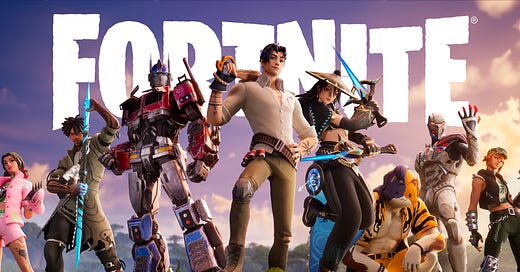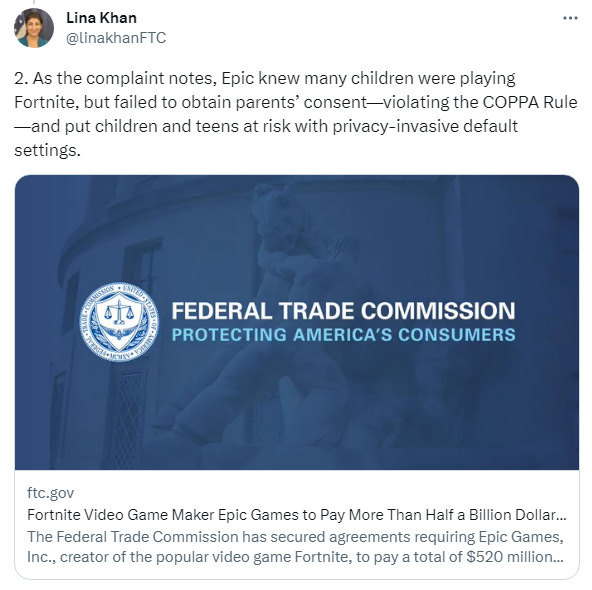How You (and Your Kids) Can Get a Refund From the FTC’s $245 Million Fortnite Settlement
Epic Games' settlement with the U.S. government is shockingly broad, and meant to send a message to other game developers trying to seek money from children.
The U.S. government has several times gone after Fortnite developer Epic Games over its business practices, resulting in FTC settlements to the tune of $245 million and $275 million. The $245 million was related to the company’s handling of in-game purchases, and how, according to the FTC, the former Gears of War developer deployed “deceptive practices to trick players into making unwanted purchases.”
If you or your child made an in-app purchase within Fortnite, a game built around buying battle passes and costumes to show off in front of everyone else, on any platform between January 2017 and September 2022, you’re eligible for a refund.
“Epic used privacy-invasive default settings and deceptive interfaces that tricked Fortnite users, including teenagers and children,” FTC Chair Lina Khan said in a statement when the original settlements were announced in late 2022 and 2023.
The FTC started emailing Fortnite players on September 19, but if you didn’t receive an email, it’s possible to apply for a refund by heading to this website from the FTC.
Fortnite made Epic Games more than $9 billion over the course of its first two years.
The requirements for being eligible are as follows, per the FTC guidelines:
You were charged in-game currency for items you didn’t want between January 2017 and September 2022
Your child made charges to your credit card without your knowledge between January 2017 and November 2018
Your account was locked between January 2017 and September 2022 after you complained to your credit card company about wrongful charges
The last one is interesting, because it’s common for companies, be it Amazon or Epic Games or Sony, to lock a user’s account in response to disputing a credit card charge.
The deadline for filing a claim is January 17, 2024. You have to be at least 18 years old to apply for a refund, though an adult can file for the claim on a child’s behalf. The items don’t disappear from your inventory; this is a refund for the original purchase.
So far, the FTC hasn’t said when the money will go out.
“The old status quo for in-game commerce and privacy has changed, and many developer practices should be reconsidered,” said Epic Games after the settlements. “We share the underlying principles of fairness, transparency and privacy that the FTC enforces, and the practices referenced in the FTC’s complaints are not how Fortnite operates.”
One of the major changes Epic Games rolled out was Cabined Accounts, aimed at younger players, to give parents more active controls. A Cabined Account include steps where children must wait for parental consent before anything happens.
While Fortnite might seem like a game for teenagers and above, the reality is Fortnite, and many games like it, are frequently played by much younger audiences, as well.
Have a story idea? Want to share a tip? Got a funny parenting story? Drop Patrick an email.
Also:
If you find news-y posts like this useful, let me know. I don’t want to clog your inbox, and I’m slowly trying to find different ways to providing information here.
I’d love to hear from parents whose kids are into Fortnite, and how you’ve balanced the purchasing habits, as the game has rolled out costume after costume.
Any of you going to file for a refund? I’m curious how the process goes for you!







I've never really understood putting my credit card information into something that I didn't control and that was saving that information to be able to make more purchases and then being suprised when it happens *shrug* Kids aren't know for their impulse control, hell lots of adults have the same issue.
Do we know what the "privacy-invasive default settings" were?